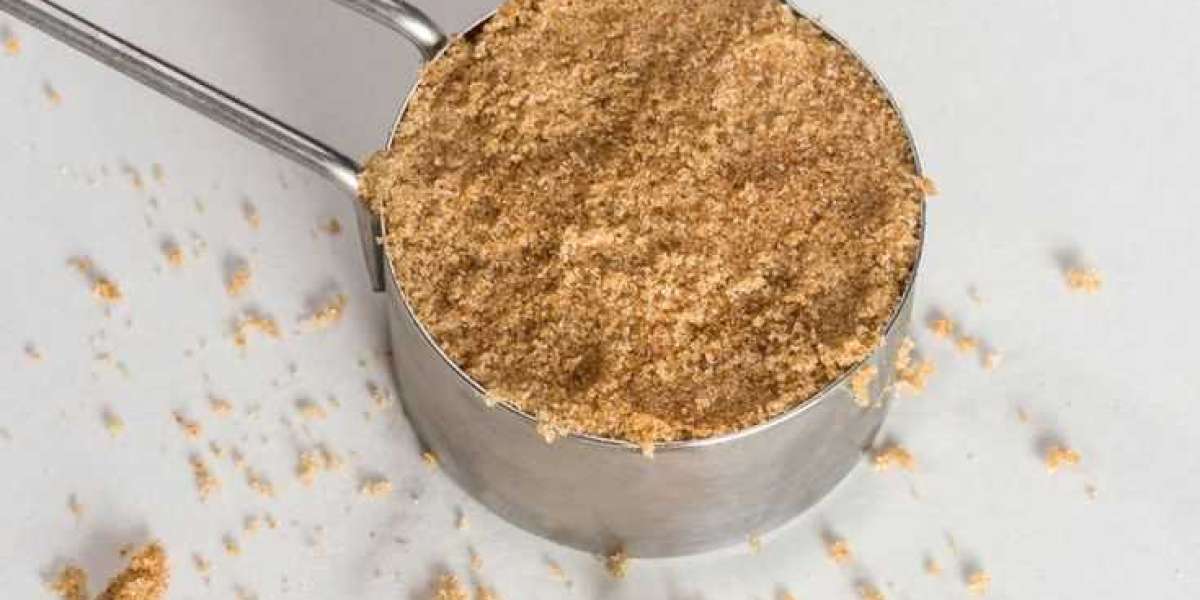Brown sugar is a popular kitchen staple, cherished for its unique caramel flavor and moist, grainy texture. Unlike white sugar, which is heavily refined, brown sugar retains a portion of molasses, giving it its rich, golden hue and a deeper, more complex flavor. From baked treats to savory sauces, brown sugar’s subtle molasses notes can transform everyday dishes into something special. In this guide, we’ll delve into what makes brown sugar unique, explore its health benefits, and discover the best ways to use it in cooking and baking.
What is Brown Sugar?
Brown sugar is simply white sugar with added molasses, which accounts for its distinctive color, texture, and taste. The higher the molasses content, the darker and more intense the flavor. There are two main types of brown sugar: light brown sugar, which is milder with a lighter color, and dark brown sugar, which has a higher molasses content and offers a richer, more pronounced caramel flavor. Both types are frequently used in baking, though dark brown sugar is often preferred for recipes that require a bold, full-bodied taste, like gingerbread or barbecue sauces.
Health Benefits of Brown Sugar
While brown sugar is still a form of sugar and should be used in moderation, it contains trace amounts of nutrients thanks to its molasses content. Small amounts of calcium, potassium, iron, and magnesium can be found in brown sugar, offering a minimal nutritional boost compared to white sugar. Additionally, some people find brown sugar gentler on the stomach, making it a preferred choice in certain traditional medicinal practices. Although the health advantages are slight, brown sugar does have a bit more to offer than its fully refined counterpart.
Interestingly, brown sugar contains antioxidants derived from molasses, which help combat oxidative stress in the body. Although these antioxidants are present in small quantities, using brown sugar over white sugar does provide a minor antioxidant boost. However, it’s essential to remember that brown sugar is still a sugar, so it’s best to enjoy it mindfully.
How to Use Brown Sugar in Cooking and Baking
Brown sugar’s soft texture and caramel-like flavor make it a favorite in baking, but its applications extend far beyond desserts. In baked goods, brown sugar helps create a moist, chewy texture, making it ideal for cookies, cakes, and muffins. When baking chocolate chip cookies, for instance, the addition of brown sugar provides not only moisture but also a delightful caramel flavor that enhances the chocolate’s richness.
In sauces and syrups, brown sugar shines due to its molasses undertones, which lend a complex, toasty flavor to caramel sauces, glazes, and marinades. When making caramel sauce, brown sugar’s unique properties allow for a deeper, more complex caramelization, perfect for drizzling over ice cream or pancakes. Additionally, brown sugar can act as a quick substitute for maple syrup by simply melting it with a bit of water, creating a delicious homemade syrup with a rich flavor.
Savory dishes also benefit from the depth that brown sugar brings. For example, it’s commonly used in barbecue sauces to balance acidity with sweetness and achieve a beautiful caramelization on grilled meats. In marinades, brown sugar works well with spices to create a flavorful crust when the meat is grilled or roasted. Similarly, adding a touch of brown sugar to baked beans adds a warm sweetness that complements the savory ingredients, creating a hearty, comforting dish.
Using Brown Sugar in Beverages
Brown sugar isn’t just for food—it’s also a wonderful addition to various drinks. When added to coffee or lattes, brown sugar provides a subtle caramel flavor that enhances the coffee’s bold taste. It’s also a fantastic ingredient for hot cocoa, making the chocolate flavor richer and more indulgent. For cocktail enthusiasts, brown sugar syrup can elevate drinks like Old Fashioneds and Mojitos, adding a layer of complexity that white sugar simply can’t match. In these beverages, the molasses in brown sugar adds warmth, making each sip feel richer and more satisfying.
Substituting and Storing Brown Sugar
If you run out of brown sugar, it’s easy to make a substitute at home by combining white sugar with molasses—one tablespoon of molasses per cup of sugar creates a light brown sugar substitute, while two tablespoons yield dark brown sugar. Alternatively, coconut sugar can also be used as a substitute, as it shares a similar texture and taste, though it may slightly alter the flavor profile.
Storing brown sugar requires a bit of extra care to prevent it from hardening. Because of its moisture content, brown sugar can easily dry out and become solid if left exposed to air. To keep it soft, store brown sugar in an airtight container, and consider adding a slice of bread or a few marshmallows to maintain moisture. If you find your brown sugar has hardened, you can revive it by placing it in a microwave-safe bowl with a damp paper towel and microwaving it for a few seconds, or by sealing it in a container with an apple slice or bread overnight to soften it.
Health Considerations
While brown sugar offers a few minor nutritional benefits over white sugar, it’s essential to use it in moderation. Brown sugar has a similar caloric value to white sugar, meaning that it can still contribute to weight gain and dental issues if consumed excessively. Its glycemic index is also comparable to that of white sugar, so people with diabetes or those monitoring their blood sugar levels should limit their intake. However, as with all foods, enjoying brown sugar in balanced amounts allows you to reap its flavor benefits without the downsides.
Conclusion
Brown sugar is more than just a sweetener; it’s a versatile ingredient that adds depth and warmth to a wide array of recipes. From the chewy texture it brings to cookies to the rich, caramel undertones it adds to sauces and beverages, brown sugar’s unique flavor profile makes it a valuable addition to any kitchen. With proper storage and a bit of creativity, brown sugar can enhance both sweet and savory dishes, turning simple recipes into indulgent experiences. So, whether you’re crafting a batch of gooey chocolate chip cookies, preparing a savory barbecue sauce, or stirring it into your coffee, brown sugar is an ingredient that can elevate your cooking in delicious ways. Make every recipe sweeter with Baqa Foods Brown Sugar – the perfect touch for all your culinary creations!








